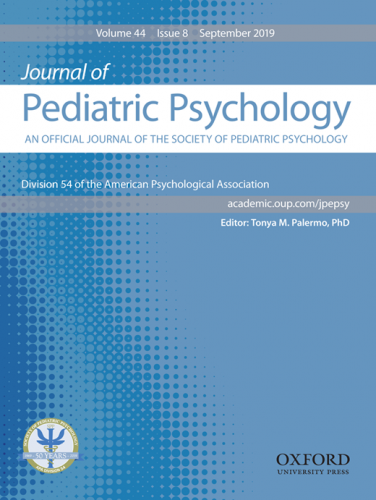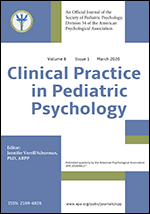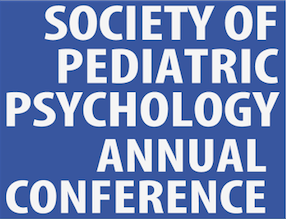Fact Sheet: Caregiver Wellbeing
Background and Significance:
An ethical imperative exists for pediatric psychologists to address the mental health needs of
parents/caregivers (Kahhan & Junger, 2021) and the recognition of caregiver mental health in the
context of pediatric settings (clinical and research) is an area of unmet need. Caregivers of
children with acute and chronic health conditions tend to have poorer quality of life, as well as
increased rates of anxiety, depression, and trauma compared to caregivers of healthy children;
these caregivers experience unique challenges to their economic, psychosocial, and physical
wellbeing (Alegría et al., 2018). Moreover, there are both short- and long-term consequences of
caregiver mental health on childhood outcomes; caregiver wellbeing directly impacts the
effectiveness of pediatric behavioral interventions, as well as parenting practices (Burns et al.,
2010; Gomez, 2021; Kahhan & Junger, 2021). Families are also more at-risk when experiencing
cumulative levels of stress, impacted by struggles of social determinants of health (experiencing
racial bias/prejudice, lack of social support or education, food and transportation instability).
Conversely, resiliency factors for caregivers include higher socio-economic status, education,
social support, and family functioning and cohesion (Trask et al., 2003). Given that caregivers
typically attend medical appointments and hospital stays in support of their children and
participate in research opportunities, pediatric psychologists are well-positioned to help identify,
treat, and/or refer caregivers for identified needs.
This factsheet serves to guide those involved in pediatric psychology and similar fields, to assist
in the development of structured programming, resources, or research in the area of caregiver
wellbeing, as part of the Society of Pediatric Psychology Division 54 Caregiver Wellbeing
Special Interest Group.
Evidence-Based Assessment Measures for Caregivers:
Research has demonstrated that mental health screening of parents is effective, accepted, and
feasible across medical settings for identifying parental distress.
Commonly used measures, available for free:
- Coping Health Inventory for Parents (McCubbin et al., 1983)
- Parental Stress Scale (Berry & Jones, 1995)
- Parenting Sense of Competence Scale (Johnston & Marsh, 1989)
- Patient Reported Outcomes Measurement Information System (Cella et al., 2019)
- The Warwick-Edinburgh Mental Well-Being Scale (Tennant et al., 2007)
- WHO-5 Well-Being Index (WHO, 1998)
Commonly used measures, available for purchase:
- Impact on Family Scale (Stein, 1980)
- Parenting Stress Index (Abidin, 1995)
- Psychosocial Assessment Tool (Kazak et al., 2018)
Evidence-Based Interventions for Caregivers:
- The most efficacious individual therapy modality for caregiver wellbeing and mental
health is Problem Solving Therapy (Eccleston et al., 2015) - In addition to individual therapy modalities, the following interventions are recommended:
- Education and support groups (Eccleston et al., 2015)
- Family advisory councils (Richard et al., 2020)
Research has also demonstrated that in-person and online didactic interventions that target
mental health awareness, skill development, and goal-setting are effective, accepted, and
feasible.
*Please note that the above interventions are for all types of caregivers (as opposed to specific
subsets, such as parents of children with cancer), and primarily focus on their own well-being as
opposed to focusing on directly optimizing their child’s functioning.
Diversity, Equity, and Inclusion Considerations:
There is a growing urgency to eliminate health disparities in pediatrics. COVID-19 called to the
forefront some of these issues, including systemic racism and the inequitable distribution of
social determinants of health across the population. Thus, while working with caregivers, areas
of diversity, equity, inclusion, and access should be emphasized (Kahhan & Junger, 2022).
Potential efforts include:
- Utilizing eHealth interventions for caregivers, to increase access to evidence-based
treatments. These eHealth interventions may reduce barriers associated with time and
transportation, however they rely on access to stable internet sources and electronic
devices. - Evaluating and responding to caregiver needs as a part of routine care, which improves
access, decreases stigmatization, helps to improve child outcomes, and supports our
colleagues in recognizing a broader range of needs. - Building referral and resource networks and knowledge of these networks in
interdisciplinary settings. - Leveraging leadership skills, communication skills, relationship building techniques, and
scientific methods to advocate for what is needed with regard to caregiver wellbeing. - Continuing efforts to build a more diverse pediatric psychologist workforce.
- Enhancing competencies and increasing cultural humility in working with diverse
caregivers.
Resources:
- Please reach out to the Caregiver Wellbeing SIG if you are seeking support in finding a
measure or intervention that is right for your setting and need! More information can be
found at Get Involved | Caregiver Wellbeing SIG (div54cwsig.wixsite.com) - Caregiver Wellbeing SIG’s Instagram: Evidence-based information for caregivers of
children with acute/chronic conditions. Information developed by psychologists and
psychology trainees in the special interest group. https://www.instagram.com/caregiverwellbeingspp/ - Caring Bridge: Online tool for documenting and sharing your child’s journey.
https://www.caringbridge.org - Courageous Parents Network - A non-profit organization and educational platform
that orients, empowers and accompanies families and providers caring for children with
serious illness. CPN | Courageous Parents Network - Kids and Caregivers: A hub for information, education, support resources, and
connecting families. http://www.kidsandcaregivers.com/ - American Psychological Association’s Caregiving Page: Links to APA’s publications
and advocacy pages regarding caregiving. https://www.apa.org/pi/about/publications/caregivers
Authors: Ameena Ahmed, Psy.D., Nicole Dempster, Ph.D., & Nicole Kahhan, Ph.D.
References
Abidin, Richard R. (1995). Parenting Stress Index: Professional Manual. Lutz, FL, Psychological
Assessment Resources.
Berry, J. O., & Jones, W. H. (1995). The Parental Stress Scale: Initial psychometric evidence.
Journal of Social and Personal Relationships, 12(3), 463–472.
https://doi.org/10.1177/0265407595123009
Eccleston, C., Fisher, E., Law, E., Bartlett, J., Palermo, T. M. (2015). Psychological interventions
for parents of children and adolescents with chronic illness. Cochrane Database of Systematic
Reviews, 4. doi: 10.1002/14651858.CD009660.pub3
Johnston, C. and Marsh, E. J. (1989). A measure of parenting satisfaction and efficacy. Journal
of Clinical Child Psychology, 18(2), 167-175.
Junger, K. W., & Kahhan, N. A. (2022). Incorporating DEI informed-frameworks and increasing
access to parent-focused interventions in pediatric psychology. Clinical Practice in Pediatric
Psychology, 10(3), 233-240.
Kahhan, N. A., & Junger, K. W. (2021). Introduction to the special interest issue on
parent/guardian interventions in pediatric psychology: The role of the pediatric psychologist
working with caregivers as the target of intervention. Clinical Practice in Pediatric Psychology,
9(2), 107-111.
Kazak, A., Hwang, W. T., Chen, F. F., Askins, M., Carlson, O., Argueta-Ortiz, F., & Barakat, L.
(2018). Screening for family psychosocial risk in pediatric cancer: Validation of the Psychosocial
Assessment Tool (PAT) Version 3. Journal of Pediatric Psychology, 43, 737-748.
McCubbin, H. I., McCubbin, M. A., Patterson, J. M., Cauble, A. E., Wilson, L. R. & Warwick,
W. (1983). CHIP-Coping Health Inventory for Parents: An assessment of parental coping
patterns in the care of the chronically ill child. Journal of Marriage and the Family, 45(2),
359-370. doi: 10.2307/351514.
Richard, J., Azar, R., Doucet, S., Luke, A. (2020). Pediatric patient and family advisory councils:
A guide to their development and ongoing implementation. Journal of Patient Experience,
7(6),1476-1481. doi: 10.1177/2374373520902663.
Stein, R. E. K. & Riessman, C. K. (1980). The development of the Impact on Family Scale:
Preliminary findings. Medical Care, 18, 465-472.
Tennant, R., Hiller, L., Fishwick, R., Platt, S., Joseph, S., Weich, S., Parkinson, J., Secker, J., &
Stewart-Brown, S. (2007). The Warwick-Edinburgh mental well-being scale (WEMWBS):
Development and UK validation - health and quality of life outcomes. Health and Quality of Life
Outcomes, 63(5). https://doi.org/10.1186/1477-7525-5-63
Topp C. W., Østergaard S. D., Søndergaard S., & Bech P. (2015). The WHO-5 Well-Being Index:
A systematic review of the literature. Psychotherapy and Psychosomatics, 84, 167-176.
Trask, P. C., Paterson, A. G., Trask, C. L., et al. (2003). Parent and adolescent adjustment to
pediatric cancer: Associations with coping, social support, and family function. Journal of
Pediatric Hematology/Oncology Nursing, 20(1), 36-47. doi:10.1053/jpon.2003.5.



